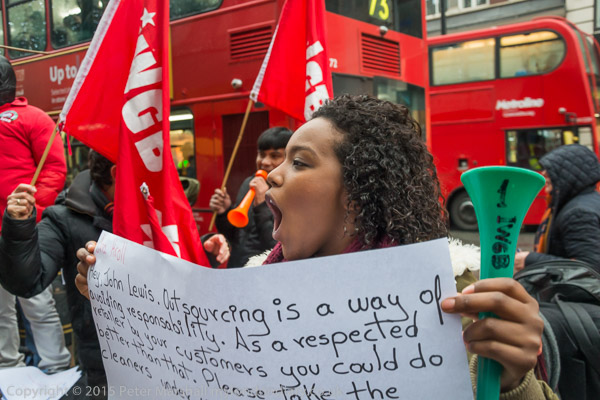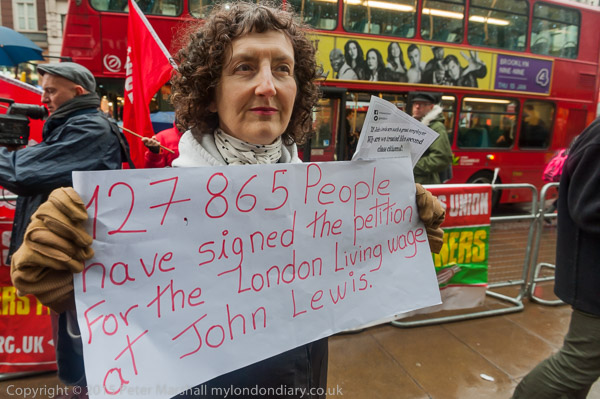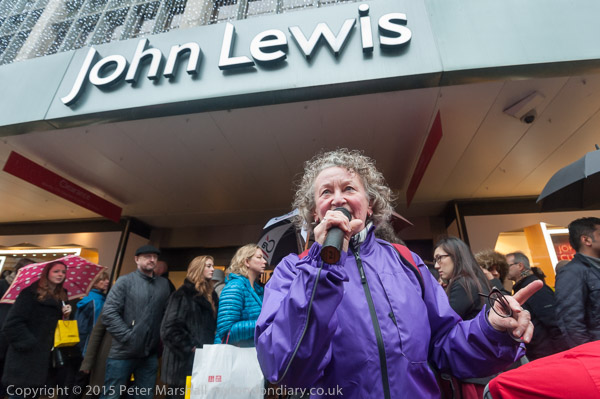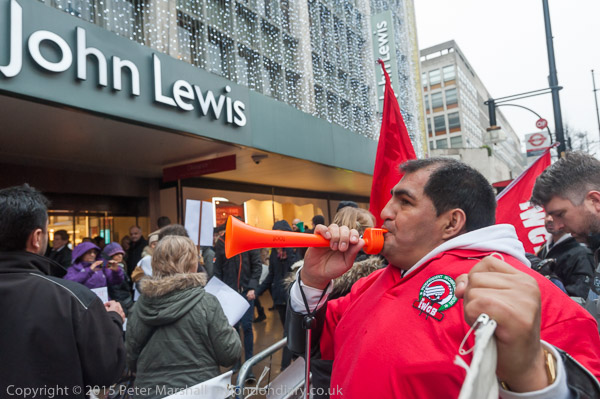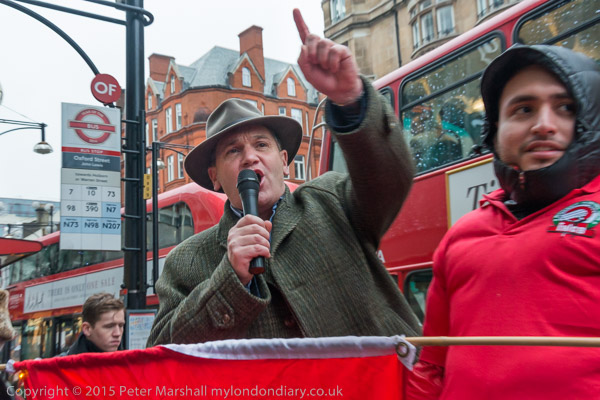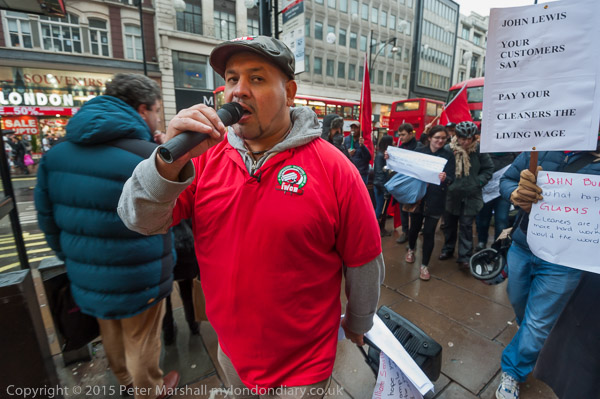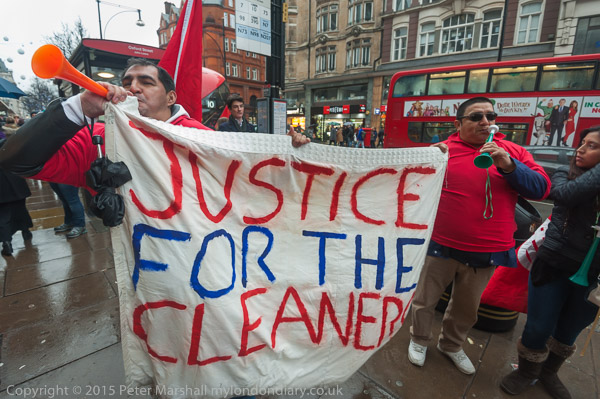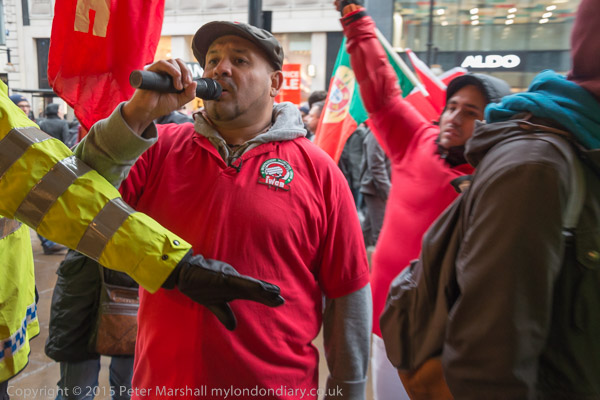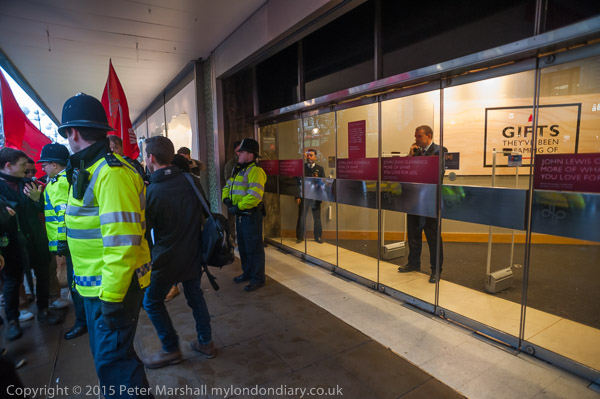Protests had begun against a small EDO-MBM factory at Moulsecoomb on the outskirts of Brighton in 2003 after the press had revealed that it was making parts for a guided bomb that was being used in the invasion of Iraq.
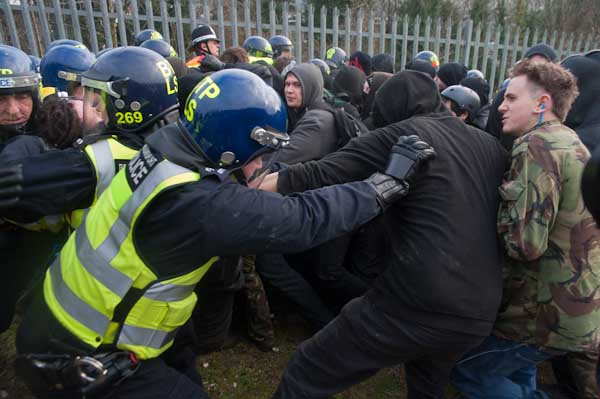
In April 2005, EDO attempted to get a wide-ranging injunction to prevent protests at the site, including stepping onto the road outside the factory, playing music and taking photographs. This was the start of a lengthy legal action in which the UK Attorney-General became involved, as the defendants had submitted a detailed dossier on war crimes involving air strikes on civilian areas and infrastructure and were arguing that the invasion was an illegal war of aggression in breach of the UN Charter.
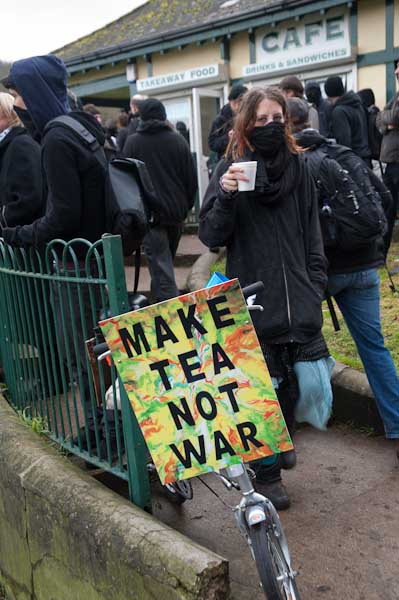
The Wikipedia article states “The court found that if there was an imminent war crime that the protesters believed on reasonable grounds, was about to take place, in which EDO were complicit, then preventative direct action could lawfully be taken against the company without waiting for the authorities of the state to intervene. This ruling effectively allowed proportionate direct action against companies by protesters, if the threat of the crime was imminent and specific.”
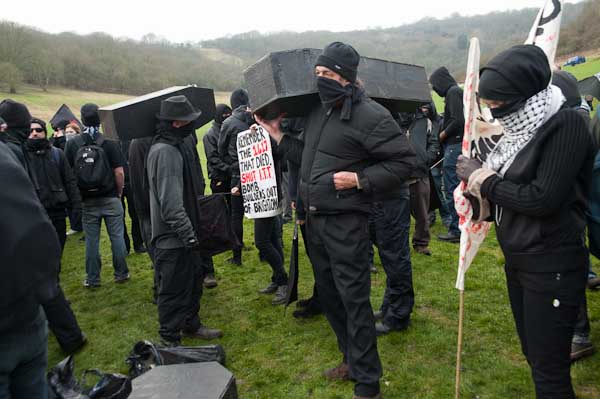
Some of the defendants signed an out of court settlement with EDO in April 2005 after it was put forward by Keir Starmer and they were then told legal aid would be withdrawn unless they agreed. They then intervened with a suggestion which was them he would withdraw their legal aid and they signed “undertakings not to do certain things that they had never done and had no intention of doing” with EDO agreeing to pay their costs, as well as their own, and the injunction against those not in court was lifted.
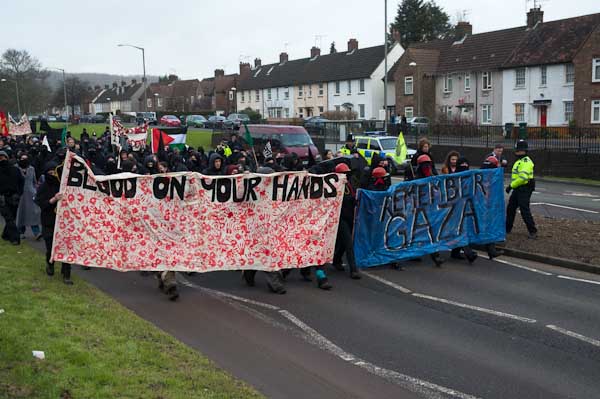
The case against three defendants who were conducting their own defence continued as they refused to sign these undertakings. In March 2006 a judge agreed with them that EDO had failed to make the preparations for a speedy trial as ordered by the court, and the company dropped the case rather than face further proceedings for abuse of process, paying the full costs of all those involved. The whole legal business is thought to have cost EDO between £1-1.5m, more than a years annual profit for the Brighton factory.
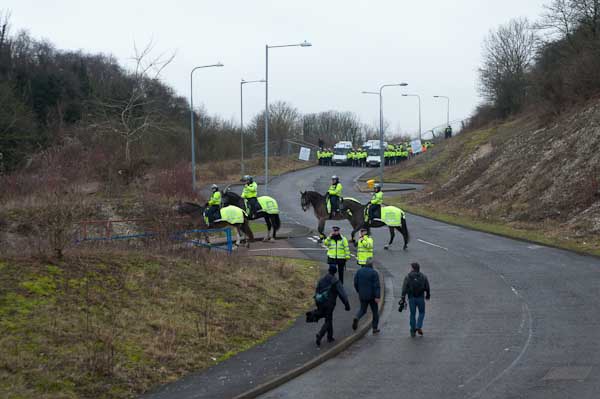
In 2009 weapons supplied by EDO were being used in the Israeli attacks on Gaza and a small group of activists decommissioned’ the factory to prevent exports to Israel. Again EDO went to court and they were again unsuccessful with the court finding all of those charged not guilty.
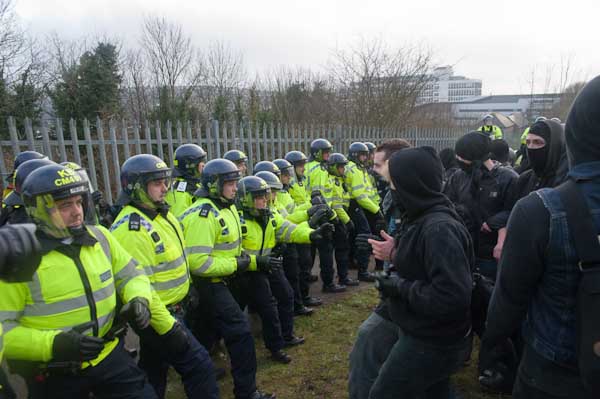
On Monday 18th January 2010, the first anniversary of the end of the Israeli war against Gaza, I went to photography Smash EDO activists in Brighton who were protesting against arms manufacturer EDO MBM/ITT who made some of the weapons that killed 1417 Palestinians, mainly the elderly, women and children, during the three-week assault.
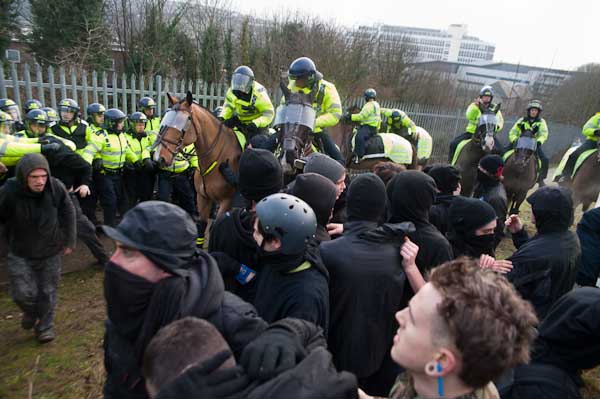
Despite earlier rulings that such protests were legal, the police had come determined to stop this one taking place, responding to the protesters who they probably outnumbered with an impressive display of force and violence as they attempted to make their way to protest at the factory.
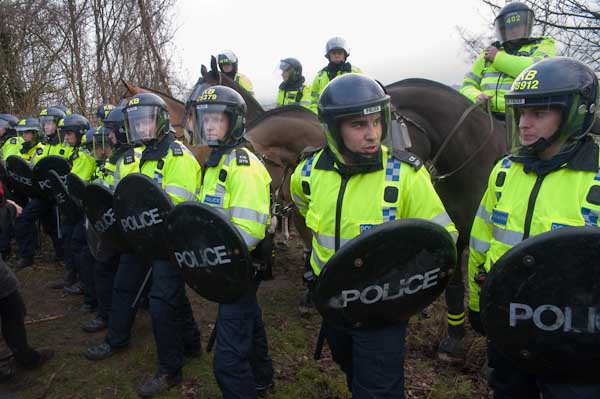
I went with the protesters as they tried to go around the police lines through the woods and along a footpath and was able to photograph some of the confrontations. You can see more of what happened on that day in the pictures and the captions in my post on My London Diary.
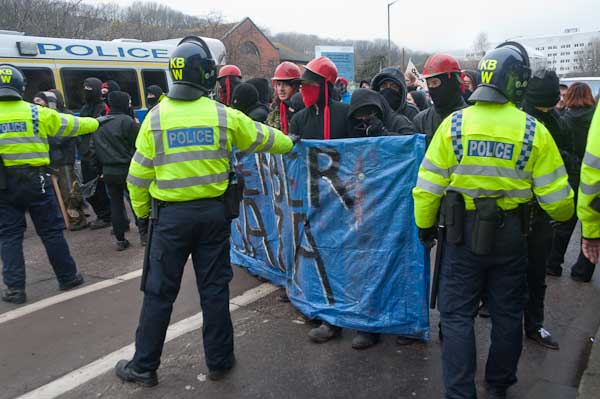
What I don’t mention there is that like many of the protesters I was also assaulted several times by some of the officers while taking pictures, and at one point only just managed to stop myself going over a roughly 50ft drop when pushed violently by one of them. Other officers helped me up and to move away from the edge, but it was at times a scary event to cover. I was bruised and shaken as well as tired and left Brighton while the police were still harassing the protesters who had marched back towards the centre of the town.
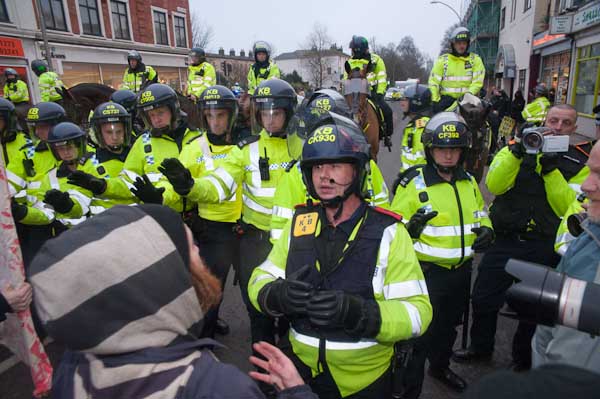
Protests continue at EDO’s factory, now led by Brighton Against the Arms Trade, after the Moulsecoomb factory was found in 2019 to have produced arms used in a Saudi ‘attack that violated international law’ against a civilian target in Yemen and to be involved in helping Turkey to get around US attempts to prevent the proliferation of drone warfare.
